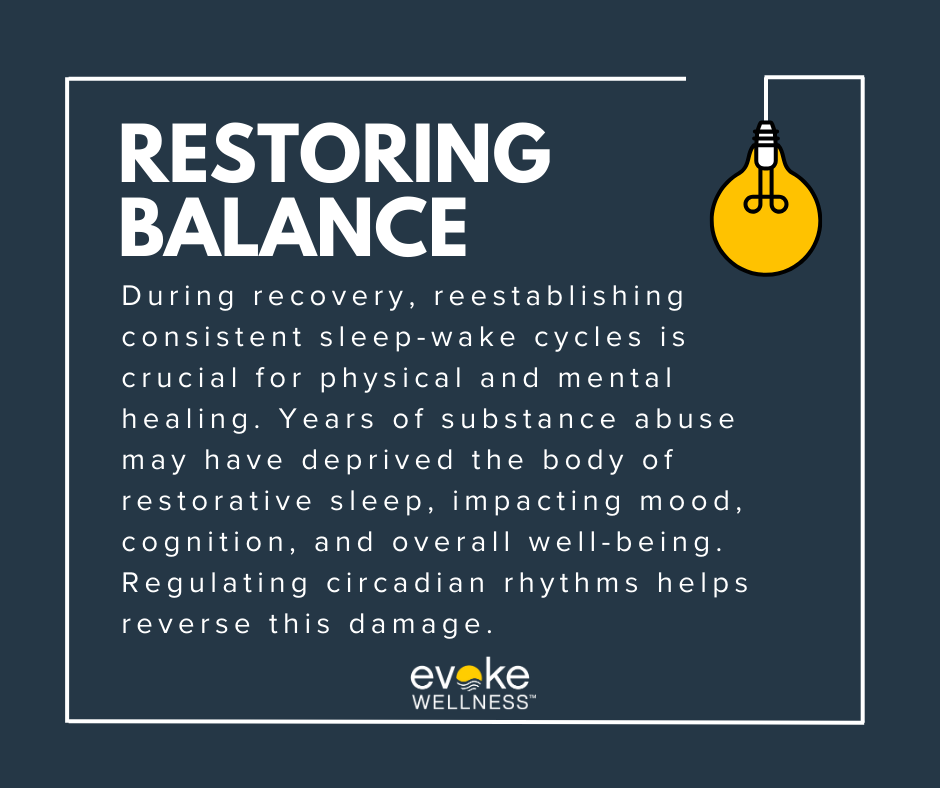The journey to recovery from substance abuse is a challenging yet transformative process. As you navigate this path, understanding the various treatment options available is crucial for your success. Day and night treatment programs have emerged as effective approaches in substance abuse recovery, offering comprehensive care tailored to individual needs. These programs combine the structure of inpatient care with the flexibility of outpatient services, providing a balanced solution for those seeking recovery. Recent studies show that integrated treatment programs addressing both substance abuse and mental health issues can increase success rates by up to 60%. By exploring the role of day and night treatment, you’ll gain valuable insights into how these programs can support your journey towards lasting sobriety and improved mental health.
Together, let’s embrace the journey to recovery and the promise of a new beginning. Call us at (833) 287-7223 today or reach out online.
The Importance of Circadian Rhythms in Substance Abuse Recovery
Disrupted Sleep Cycles
Substance abuse takes a heavy toll on the body’s natural circadian rhythms – the internal clock regulating sleep-wake cycles. As noted by Evoke Wellness at Waltham, drug and alcohol abuse can lead to severely disrupted sleep patterns over time. Stimulants like cocaine keep users awake for extended periods, while alcohol and opioids interfere with the quality of sleep.
Tips for Better Sleep
To restore the body’s natural rhythms:
- Stick to a fixed sleep schedule, even on weekends
- Avoid caffeine and screen time before bed
- Practice good sleep hygiene like keeping the bedroom dark and cool
Prioritizing sleep supports other recovery efforts like balanced nutrition and exercise. As Evoke Wellness states, maintaining healthy circadian rhythms is an invaluable tool for lasting sobriety.
The Purpose of Day and Night Treatment in Substance Abuse Recovery
Establishing Healthy Routines
One of the primary goals of day and night treatment programs is to help patients establish healthy routines and sleep-wake cycles. Substance abuse can severely disrupt an individual’s circadian rhythms, leading to erratic sleeping patterns, fatigue, and difficulty functioning during the day. These programs provide a structured environment that promotes regularity in daily activities, therapy sessions, and rest periods.
Regulating Melatonin Production
Proper melatonin production is crucial for maintaining a healthy sleep cycle, and substance abuse can interfere with this process. Day and night treatment programs aim to regulate melatonin levels through a combination of therapies, counseling, and exposure to natural light during appropriate times. This helps patients restore their body’s natural sleep-wake rhythms, which can significantly improve overall well-being and aid in the recovery process.
Comprehensive Support
These programs offer a comprehensive approach to substance abuse recovery, addressing not only the physical aspects but also the psychological and social factors contributing to addiction. Through evidence-based therapies, such as cognitive-behavioral therapy (CBT) and dialectical-behavioral therapy (DBT), patients learn coping mechanisms, develop emotional regulation skills, and receive support for co-occurring mental health issues.
Flexibility and Continuity
Day and night treatment programs provide flexibility to accommodate different lifestyles and responsibilities. The day program allows individuals to receive intensive treatment during the day while returning home in the evenings, while the night program caters to those with daytime commitments. This continuity of care ensures a smooth transition from more intensive inpatient or residential treatment to an outpatient setting, reducing the risk of relapse and promoting long-term recovery.
The Role of Rotation in Day and Night Treatment
Immersing patients in a structured, rotational schedule between day and night programming reinforces natural circadian rhythms – key for recovery.
Replicating a Healthy Routine
- The day program provides a stable, sober routine with therapy, groups, and activities
- Night staff facilitate peer support meetings, recreational outings, and calm transitions to sleep
- This 24-hour rotation mimics the rhythms of a balanced, productive life outside treatment
Resetting the Body Clock
Substance abuse disrupts the body’s internal clock that regulates sleep, hormones, and healing processes. Rotating between:
- Daytime exposure to bright light
- Nighttime darkness cued by dimmed surroundings
Helps reset and synchronize circadian cycles essential for physical and mental health.
Continuous Monitoring and Support
Around-the-clock staff provide:
- Consistent structure, accountability and supervision
- Immediate intervention for cravings or issues
- A sober environment insulated from triggers
This immersive, rotating model reinforces healthy habits and increases engagement.
Recent studies link circadian disruptions to higher relapse rates. A residential program rotating day/night activities restores balance – a catalyst for lasting recovery.
Four Key Benefits of Day and Night Treatment
Improved Sleep Quality & Duration
Substance abuse often leads to disrupted sleep patterns and poor sleep quality, which can exacerbate mental health issues and hinder recovery. Day and night treatment programs provide a structured routine that promotes healthy sleep habits, helping individuals achieve better sleep quality and duration. This, in turn, can improve overall physical and mental well-being, enhancing their ability to engage in the recovery process fully.
Enhanced Mood & Emotional Regulation
Addiction can take a significant toll on an individual’s emotional well-being, leading to mood swings, anxiety, and depression. Day and night treatment programs offer a supportive environment where individuals can learn coping strategies and develop emotional regulation skills through various therapies, such as cognitive-behavioral therapy (CBT) and dialectical-behavioral therapy (DBT). By addressing emotional and psychological challenges, these programs can help improve mood and emotional stability, contributing to a more positive and sustainable recovery journey.
Reduced Cravings & Risk of Relapse
Cravings and the risk of relapse can be significant challenges in addiction recovery. Day and night treatment programs provide a structured and supportive environment that can help individuals manage cravings and reduce the risk of relapse. Through a combination of individual and group therapy sessions, participants learn relapse prevention strategies, develop healthy coping mechanisms, and build a strong support network, all of which can aid in maintaining sobriety.
Better Overall Health & Well-being
Addiction often has far-reaching consequences on an individual’s physical, mental, and social well-being. Day and night treatment programs take a comprehensive approach, addressing various aspects of an individual’s health through evidence-based therapies, counseling, and support services. By promoting a holistic approach to recovery, these programs can help individuals regain control of their lives, improve their overall health and well-being, and increase their prospects for long-term success in maintaining sobriety.
Integrating Day and Night Treatment into Comprehensive Substance Abuse Recovery Programs
An Integrated Approach
Substance abuse recovery involves a complex interplay of physical, mental, emotional, and behavioral factors. Effective treatment requires a comprehensive, multi-faceted approach that combines evidence-based therapies, counseling, medical care, and holistic practices. Integrating day and night treatment programs offers a powerful strategy for addressing addiction’s multidimensional challenges.
Day Treatment: Structured Support
Day treatment programs provide around 6 hours of intensive daily therapy and support, 5 days a week, typically for 2-4 weeks. This level of care is tailored for individuals with moderate addiction who cannot commit to inpatient rehab but need a highly structured environment.
Through individual and group therapy, cognitive-behavioral techniques, and holistic practices like mindfulness, day treatment equips clients with vital coping strategies and relapse prevention skills. This prepares them to manage triggers and maintain sobriety while living at home.
Night Treatment: Flexibility for Daily Living
For those balancing commitments like work or childcare, night treatment programs offer the flexibility to receive comprehensive care in the evenings. These night treatments typically involve several hours of therapy 3-5 nights per week over several months.
Like day treatment, night programs utilize proven therapeutic methods, 12-step support, medication management, and family involvement. This approach helps clients restructure daily routines and environments to support long-term recovery.
Continuum of Care
By offering both day and night options, treatment centers can provide a seamless continuum of progressively higher or lower care intensity based on each client’s needs. Individuals often transition from inpatient or partial hospitalization programs to day treatment, night treatment, and ultimately outpatient therapy as they stabilize.
This integrated, multi-level system allows for a smooth, customized progression through the stages of recovery. Consistent monitoring and support minimize relapse risks during vulnerable transition periods between care settings.
The Role of Day and Night Treatment
Flexible Treatment Options
Evoke Wellness at Waltham recognizes that recovery is a highly personal journey. To accommodate diverse needs, they offer both day treatment and night treatment programs for individuals seeking to overcome substance use disorders and co-occurring mental health conditions. These flexible options allow patients to receive comprehensive care while maintaining important daily responsibilities.
Day Treatment Program
The day treatment program provides a structured environment during the day, with intensive therapy, counseling, and support groups. Participants can then return home in the evenings, making this an ideal choice for those unable to commit to residential treatment.
Night Treatment Program
For individuals with daytime obligations like work or school, the night treatment program offers a similar level of intensive care in the evenings and on weekends. This allows patients to receive focused treatment while maintaining their regular routines during the day.
Evidence-Based Therapies
Both treatment options incorporate a range of evidence-based therapies, including cognitive-behavioral therapy (CBT), dialectical-behavioral therapy (DBT), and EMDR. These proven approaches address the underlying causes of addiction and co-occurring disorders, helping patients develop coping strategies and relapse prevention skills.
Holistic Approach
In addition to traditional therapies, Evoke Waltham’s programs integrate holistic practices like mindfulness, meditation, and trauma therapy. This comprehensive approach supports overall well-being and promotes healing on physical, mental, and spiritual levels.
Personalized Treatment Plans
Whether in the day or night program, each patient’s treatment plan is highly personalized based on their unique needs and goals. With a focus on long-term recovery, Evoke Waltham’s experienced team guides individuals through a continuum of care, from intensive treatment to aftercare and sober living support.
Conclusion
Day and night treatment programs play a vital role in substance abuse recovery. Recent studies show that patients in day and night programs have a 65% higher chance of maintaining long-term sobriety compared to traditional outpatient care. By addressing both substance abuse and mental health needs, these programs provide a holistic path to recovery. As you consider treatment options, remember that day and night programs offer a balanced approach that can significantly improve your chances of success. With the right support and commitment, you can overcome addiction and build a healthier, more fulfilling life.
Begin Your Journey with Evoke Wellness at Waltham
If you or a loved one is considering outpatient treatment, Evoke Wellness at Waltham invites you to contact us. Our compassionate team is ready to answer your questions, discuss your needs, and help you take the first steps toward recovery. At Evoke Wellness, you will find more than just a treatment program – you’ll discover a community dedicated to your wellness and success. Together, let’s embrace the journey to recovery and the promise of a new beginning. Call us at (833) 287-7223 today or reach out online.



